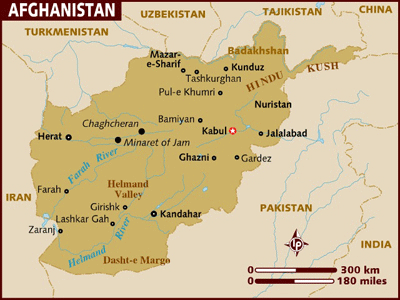* A nation perpetually at war with itself. This is the common perception about Afghanistan the world over.
* With the exception of the introduction of Islam in 642 AD, it took almost two–centuries to finally embed Islam in Afghanistan, no foreign power has been able to establish a social contract between the central Government in Kabul and villages across the rural heartland.
* The reason is that the western powers, who considered Afghanis little less than barbarians, never understood the psyche of the common folks in Afghanistan. The Afghanis through ages have resisted any foreign attempts to bring about change in their social life. Why are they averse to change? this will boggle any human mind.
* Alexander faced fierce resistance in the Afghan tribal areas and he is said to have commented that Afghanistan is "easy to march into, hard to march out of.” Genghis Khan had applied the most brutal measures during invasion in 1220, but failed.
* The British forces faced a disaster during withdrawal at the end of the first Anglo-Afghan War (1839-1842). During retreat over the mountain passes outside Kabul, about 4,500 British soldiers and 12,500 civilians died.
* During the second Anglo-Afghan War a young British soldier, Winston Churchill fought in the battle. Churchill wrote of British exploits in Afghanistan, as “Financially ruinous, morally wicked."
* The Russians during their ten-year occupation of Afghanistan learned the lesson the harder way and paid with the lives of thousands of their soldiers. They faced humiliation and defeat before they took the decision to withdraw.
* It seems that the foreign powers get trapped by Afghanistan in their quest to improve the social structure in that country, and have a foot in this strategically located nation.
* Often the foreign powers suffer from a notion that their choices are correct, and thus invest so much in there. But in the end they leave Afghanistan, empty handed. The fate of the NATO forces doesn't seem to be any different that of their predecessors.
* Sadly, Afghanistan remains a graveyard for the foreign powers.




